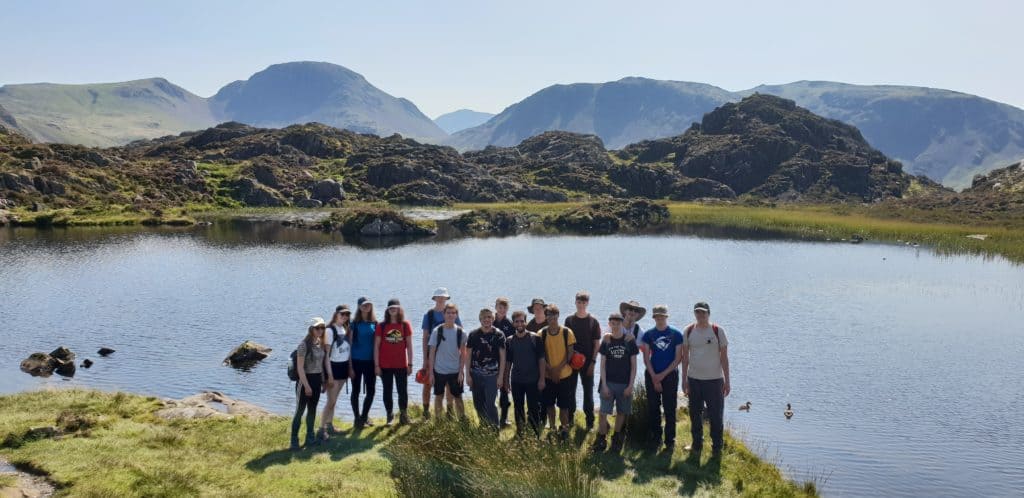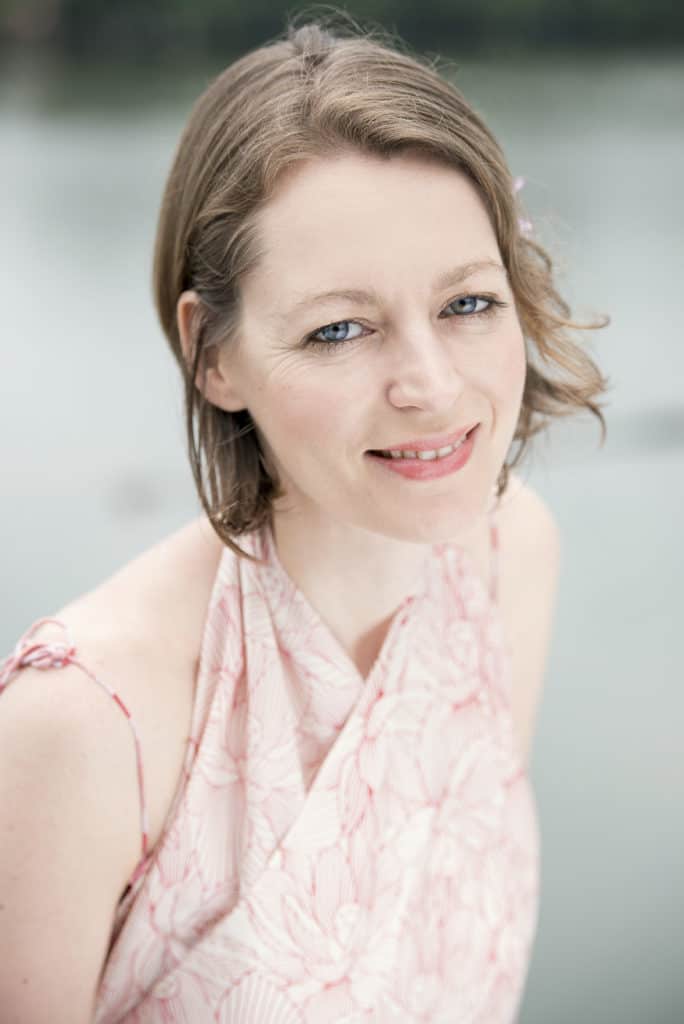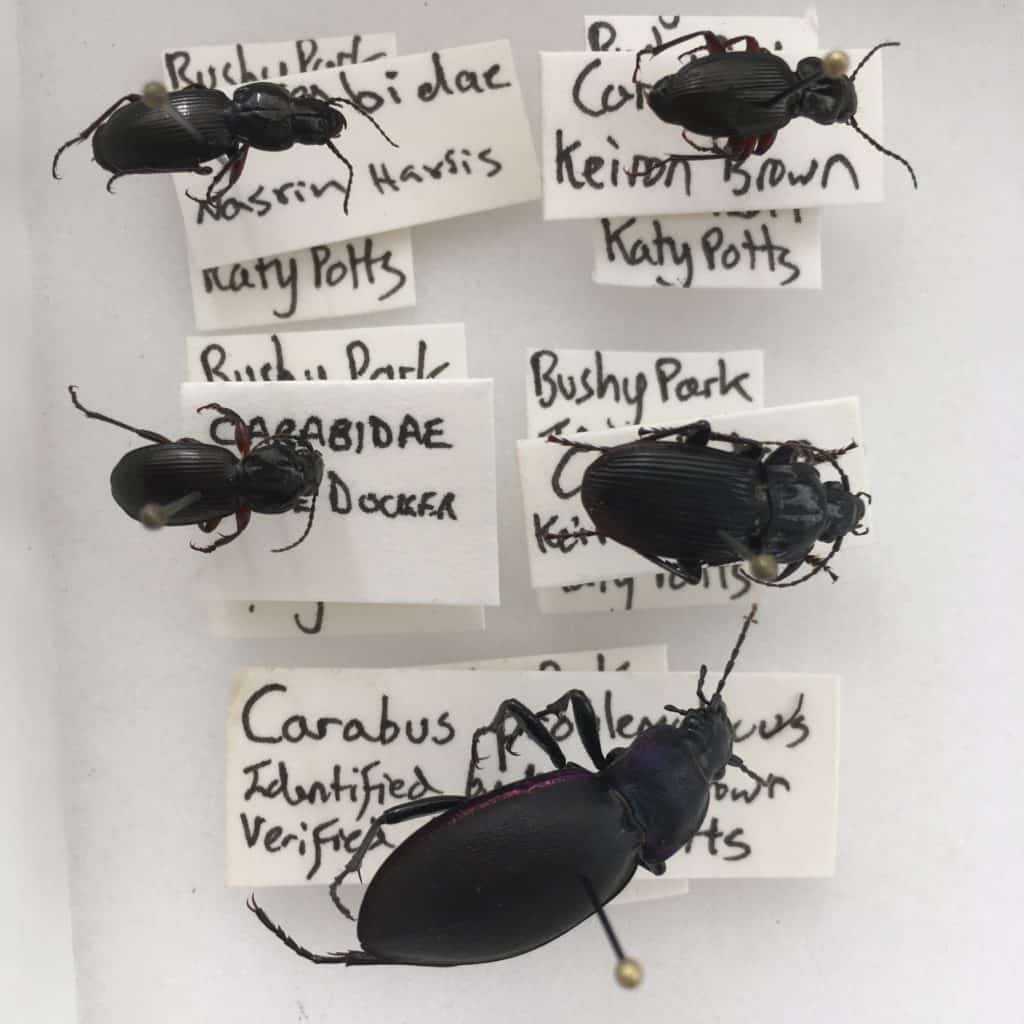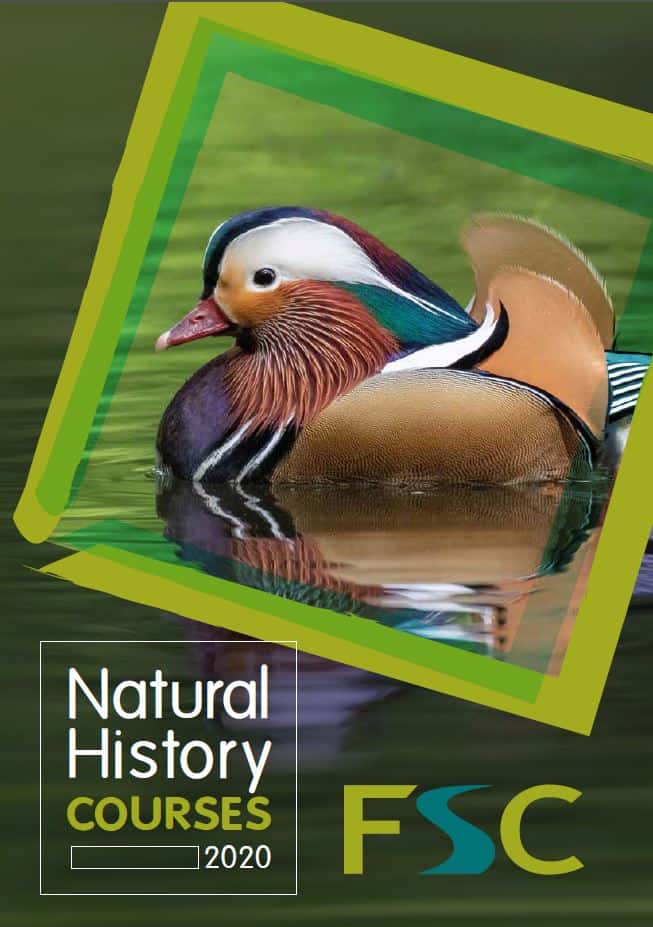We are delighted to launch our new programme of courses for 2020, offering a huge range of courses learning about, or taking inspiration from, the natural world.
We are renowned for both our Natural History Courses and Art Holidays which take place across our centres in the UK and which are delivered by passionate tutors. 2020 will see FSC running over 600 courses this year under the main categories of:
- Animals
- Plants
- Habitats and conservation
- Painting, drawing and the arts
- Crafts and traditional skills
- Photography
In our Natural History section introductory courses run alongside those offering advanced training in taxonomy and identification skills. Many are suitable for career development if you work in an environmental field. We’re also proud to be offering courses in partnership with British Trust for Ornithology (BTO), Bat Conservation Trust (BCT), The Mammal Society (MS), Amphibian and Reptile Conservation Trust (ARC) and The British Lichen Society (BLS). Sections include courses about birds, mammals, butterflies and moths, reptiles and amphibians, bees and other pollinators, plants, trees, fungi, lichens, marine habitats, National Vegetation Classification as well as many other specialisms.
Our wide range of walking, photography, painting and craft holidays are all about exploring the beautiful surroundings of our centres and taking inspiration from the natural world around us. They offer a wonderful chance to escape day-to-day life, relax and enjoy a sociable break.
We have increased the number of courses we are running under the theme of Health and Wellbeing and we also have a record number of courses running for young people, some of which are applicable for those looking to complete their Gold Duke of Edinburgh Award.

Our tutors are a mix of familiar faces who have returned to teach their courses at FSC year after year, along with new tutors who feel that the FSC audience would be interested in their speciality. One new tutor, Laura Hoy is teaching new courses with FSC this year which focus on Botanical Alchemy and Essential Oils:

My workshops involve making your own natural aromatherapy and skincare products using essential oils and other plant derived ingredients. I choose to run them at venues that have a connection to nature, preferably with plants around that yield essential oils. Working with the Field Studies Council is a great compliment to what I share as they are dedicated to taking care of our environment, this supports understanding how precious the ingredients are that we use in the course and how important it is to consider their origin, sustainability and quality. I’m really looking forward to being at each centre and although the course is classroom based, there will be space to enjoy the beautiful surroundings.
Laura Hoy, new FSC Associate Tutor
FSC London has developed a number of day courses which will take place over a variety of london parks. One new course, ‘Looking at Terrestrial Invertebrates with Microscopes’ was developed within the FSC BioLinks project and aims to provide a gateway to invertebrate identification for those that have little or no experience of using a microscope. Most people can recognise a spider, but do they know what makes a spider a different from other arachnids? This new course introduces participants to the use of microscopes for observing invertebrate anatomy and provides a gentle introduction to the use of species identification keys.

My invertebrate identification skills were developed through sorting specimens for ecological research at the Natural History Museum. This included going through mixed samples of invertebrates and categorising them by taxonomic group. It provided a great overview of invertebrate anatomy and ID to broad group. I designed this course to replicate the means by which I picked up my skills and the two pilot versions of the course were very well received.
Keiron Brown, Looking at Terrestrial Invertebrates with Microscopes tutor
I’m excited to teach this course again as it’s fantastic seeing people go from thinking that invertebrate ID and microscopy is well beyond their capability, to understanding that anyone can do it with some practice and the right tools. My hope is that those coming on this course go on to develop their skills further and consider identifying and recording invertebrates in their local area.

